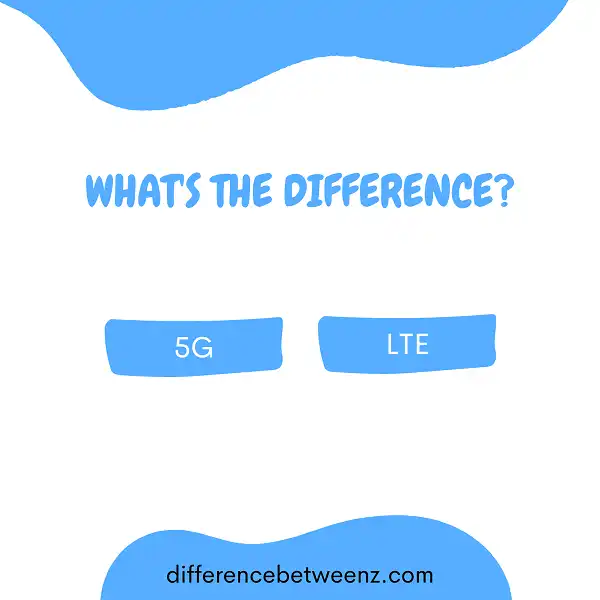As the modern world continues to develop and evolve, so does the technology we use on a daily basis. One of the most exciting evolutions in recent years is 5G, or fifth-generation mobile networks. This new type of mobile network promises to offer faster download speeds than ever before and has been described as “the trump card for digital competitiveness.” But what exactly is 5G, and how does it differ from 4G LTE? In this blog post, we’ll explore 5G vs LTE – diving into their respective advantages and drawbacks – to help you better understand how these two types of mobile networks compare.
What is 5G?
- 5G is the 5th generation of mobile technology and it is set to revolutionize the way we communicate. 5G offers a range of new capabilities that are significantly different from what most people are used to in 3G and 4G networks.
- 5G promises faster speeds, lower latency, increased device capacity, and overall better user experiences. 5G will make the internet dramatically faster with download speeds reaching upwards of 10 Gigabits per second, more than 200 times faster than what most people have today.
- 5G will also support much larger numbers of devices connected to each other, higher reliability, and much lower latency allowing for real-time applications like automated driving or streaming virtual reality video. 5G is truly an exciting technological advancement that will change our world for the better!
What is LTE?
- LTE stands for Long-Term Evolution, and it is a variety of digital cellular phone systems that has been integrated into modern smartphones. LTE has the ability to stream large amounts of data at greater speeds over long distances with low latency compared to older generations of cell networks.
- LTE technology has allowed users to stay connected in more ways than ever before, enabling them to access high-speed internet on the go, watch a video without lag, or make video calls without any disruption.
- LTE also offers improved security by offering faster connection times and end-to-end encryption, allowing users to rest assured that their information is safe while they’re using LTE services. With its capabilities and features, LTE is quickly becoming the standard in wireless connectivity across all types of devices.
Difference Between 5G and LTE
5G and LTE are both terms used to describe wireless network technology, but they are not the same.
- 5G technology is the fifth generation of mobile broadband networks, while LTE stands for Long Term Evolution and is a type of 4G technology.
- 5G is much faster than LTE, capable of providing internet speeds up to 10 to 20 times faster than current 4G speeds.
- 5G also has lower latency, meaning there is increased responsiveness between devices and applications.
- 5G networks cover a much wider range than LTE acts as well, making 5G more reliable in many more scenarios from urban centers to rural areas.
Consequently, 5G is seen as an essential development for the future of industrial use cases such as autonomous cars.
Conclusion
5G is the next generation of mobile internet connection, offering faster speeds and more reliability than previous generations. LTE is a term used to describe a 4G connection, which offers slower speeds but is still considered fast by today’s standards. 5G connections are not yet widely available, but they are expected to become more common in the coming years. If you’re considering upgrading your phone or plan to take advantage of 5G speeds, make sure your device is compatible and check with your service provider for coverage in your area.


